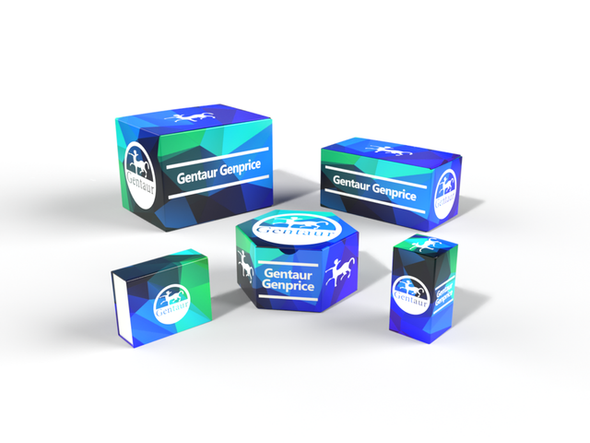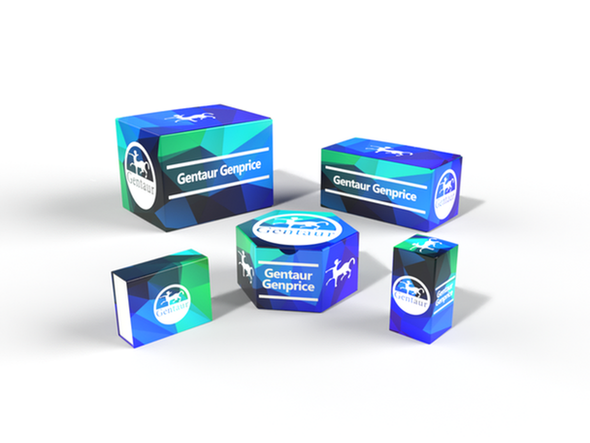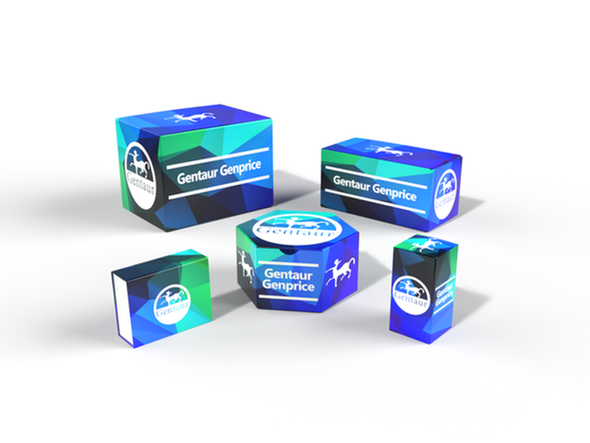740
Human Acylglycerol kinase, mitochondrial (AGK) ELISA Kit | AE24256HU
- SKU:
- 740-AE24256HU
- Availability:
- Usually ships in 5 working days
Description
Human Acylglycerol kinase, mitochondrial (AGK) ELISA Kit | AE24256HU | Gentaur UK, US & Europe Distribution
Species Reactivity: Human (Homo sapiens)
Abbreviation: AGK
Alternative Name: FLJ10842; MULK; multi-substrate lipid kinase|multiple substrate lipid kinase
Application: ELISA
Range: 0.156-10 ng/mL
Sensitivity: 0.081 ng/mL
Intra-Assay: ≤4.2%
Inter-Assay: ≤7.1%
Recovery: 1, 01
Sample Type: Serum, Plasma, Other biological fluids
Detection Method: Sandwich
Analysis Method : Quantitive
Test Principale: This assay employs a two-site sandwich ELISA to quantitate AGK in samples. An antibody specific for AGK has been pre-coated onto a microplate. Standards and samples are pipetted into the wells and anyAGK present is bound by the immobilized antibody. After removing any unbound substances, a biotin-conjugated antibody specific for AGK is added to the wells. After washing, Streptavidin conjugated Horseradish Peroxidase (HRP) is added to the wells. Following a wash to remove any unbound avidin-enzyme reagent, a substrate solution is added to the wells and color develops in proportion to the amount of AGK bound in the initial step. The color development is stopped and the intensity of the color is measured.
Product Overview: MULK contains an N-terminal diacylglycerol (DG) kinase domain, a putative nuclear localization signal, and a region with 44% homology to SPHK2. Comparison of putative vertebrate MULK orthologs showed strong conservation of amino acid sequences, and phylogenetic analysis of lipid kinases demonstrated that human and mouse Mulk together form a distinct lipid kinase family. Expression of a MULK-EGFP fusion protein in 293T cells and CHO cells showed that MULK fractionates with membranes and localizes to internal membrane compartments. RT-PCR analysis showed MULK is ubiquitously expressed, with highest expression in pancreas and brain.
Stability: The stability of ELISA kit is determined by the loss rate of activity. The loss rate of this kit is less than 5% within the expiration date under appropriate storage condition. The loss rate was determined by accelerated thermal degradation test. Keep the kit at 37°C for 4 and 7 days, and compare O.D.values of the kit kept at 37°C with that of at recommended temperature. (referring from China Biological Products Standard, which was calculated by the Arrhenius equation. For ELISA kit, 4 days storage at 37°C can be considered as 6 months at 2 - 8°C, which means 7 days at 37°C equaling 12 months at 2 - 8°C) .










